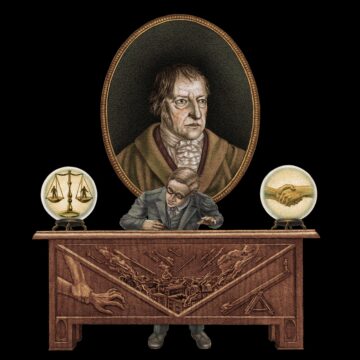David Goldman in Tablet:
 No idea has fallen flatter than the “end of history,” popularized by political philosopher Francis Fukuyama in his eponymous 1993 book. Few still believe that all human beings will accept liberal democracy and free market capitalism as the final forms of society and are uninterested in any alternative. But like many truly awful ideas, the end of history had its 15 minutes, or in this case 15 years, of fame, as a catchall motivation for America’s misguided attempt to export democracy to Afghanistan and Iraq.
No idea has fallen flatter than the “end of history,” popularized by political philosopher Francis Fukuyama in his eponymous 1993 book. Few still believe that all human beings will accept liberal democracy and free market capitalism as the final forms of society and are uninterested in any alternative. But like many truly awful ideas, the end of history had its 15 minutes, or in this case 15 years, of fame, as a catchall motivation for America’s misguided attempt to export democracy to Afghanistan and Iraq.
…The notion that history has an end begins with Isaiah’s prophecy of a messianic era in which the lion will lie down with the lamb (although the lamb won’t get much sleep, in Woody Allen’s qualification). Belief in the coming of the Messiah is a fundamental principle of Jewish faith in the list of 13 formulated by Maimonides, who added, “though he tarry.” Jewish heresies frequently take the form of “forcing the Messiah,” that is, claiming that human action rather than unknowable divine will can bring about the end of history. Forcing the Messiah pops up in Jewish history in countless guises, from Karl Marx’s proletarian revolution to the belief of some ultra-Orthodox Jews that a certain density of Torah study will persuade God to send the Messiah. The German émigré philosopher Eric Voegelin derided political messianism as “immanentizing the Eschaton,” or asserting this-worldly control of matters reserved for Providence.
More here.
Enjoying the content on 3QD? Help keep us going by donating now.
